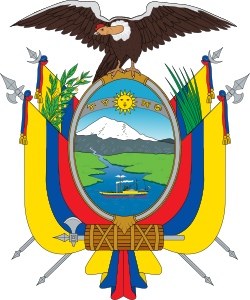 |
|---|
Constitutional Assembly elections were held in Ecuador on 30 November 1997. [1] They followed a referendum earlier in the year, in which 65% of voters voted in favour of electing an Assembly. [2] The referendum was held after a military coup on 5 February. [1]
The Social Christian Party emerged as the largest faction in the Assembly, winning 20 of the 70 seats.